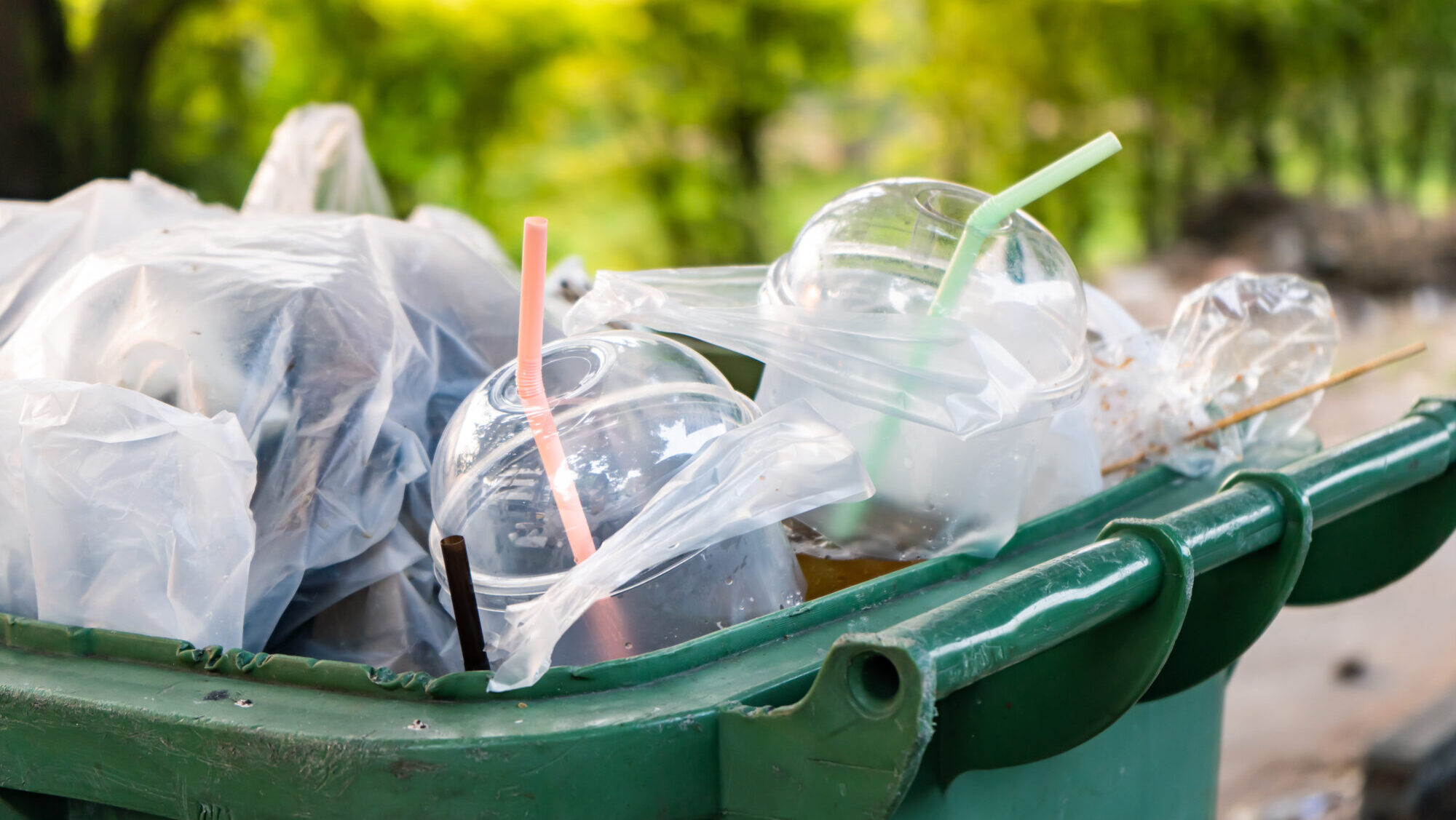Single-use plastic packaging is causing a mounting waste problem. This Horizon Europe-funded project, involving the University of Sheffield and an international team of industry and academic partners, looks at how to move to a reusable system. Research has led to sustainable packaging prototypes and papers on how to shift our mindset around the way we reuse.

Finding what really works
While legislation has been made to encourage sustainable choices, a lack of understanding on product materials and human behaviour has led to unintended consequences. The ban on plastic straws, for example, resulted in manufacturers adding ‘forever chemicals’ (like Teflon) to avoid pulpy paper straws and an environmentally worse product. To discover what changes really work, teams at the University of Sheffield are collaborating on BUDDIE-PACK, a project to reduce waste through reusable plastic packaging (RPP).
The Europe-wide project aims to analyse several aspects of reuse systems, from packaging technology to behavioural science. It hopes to design a system that works well and that people will engage with, which can then better inform decision makers. The project started in June 2022 and is due to finish in February 2026.
Researchers at the University of Sheffield were approached by project lead IPC to collaborate on BUDDIE-PACK, joining another university and industry partners across Europe. Three university disciplines are involved: Psychology, led by Professor Thomas Webb, Human Geography, led by Dr Rorie Beswick-Parsons, inform the behavioural science aspect of the project; and Chemical Engineering, led Professor Rachael Rothman and involving packaging technologist Sarah Greenwood, assesses the environmental, social and economic lifecycle of sustainable packaging.
Repackaging sustainable choices
Packaging reuse systems aren’t yet commonplace, and where they do exist, there isn’t a huge uptake. Professor Webb’s team are investigating why that is, considering factors such as cost parity, interest in the environment, and accessibility. The team use a computer paradigm to identify the point at which consumers won’t tolerate signs of wear – one of the key mental barriers to reusable items. The Human Geography team are conducting ethnographic research, observing individuals in supermarkets and at home, and conducting interviews on their packaging use.
Professor Rothman’s team look at the environmental challenges of reusable packaging, calculating how often it must be used to be more eco-friendly than single-use alternatives. Collaborating with designers, they’re testing parameters such as packaging thickness, types of plastic used, and how to best wash the packaging to identify the most environmentally friendly options. They also look at the packaging through an economic lens – people won’t buy it if it’s too costly.
Any problem you’re trying to solve around sustainability, requires you to think about the problem from lots of different angles
– Dr Rachael Rothman, Professor of Sustainable Chemical Engineering
The endpoint for the BUDDIE-PACK project is large-scale demonstration. Partners have taken knowledge gained to design packaging for real-life business cases:
- Reusable packaging in canteens and cafes
- Reusable containers for pre-packaged supermarket food
- Business-to-business meat packaging
- Laundry detergent packaging for both retail and consumer
- Catering trays for schools and nursing homes.
The team hope that learnings from the project – for example, indicators on packaging to show how much a product can be reused – can be applied widely. On the psychology side, two research papers have been produced evaluating the effects of strategies for increasing update of reusable items. The University team have begun to discuss future projects with IPC.
Connecting skill sets through Horizon Europe
The University of Sheffield team had previously worked with Innovate UK on their reusable food packaging project, Many Happy Returns. Backed by the Smart Sustainable Plastic Packaging (SSSP) challenge, it looked at how people use and return food containers such as coffee cups and salad containers. It also examined how to move the dairy industry away from single-use plastic yoghurt pots and milk bottles towards a more reusable system. This Innovate UK project set the groundwork for the team to be a part of the BUDDIE-PACK through the reputation they gained. They were able then to join the project through funding from the Horizon Europe programme.
One of the strongest benefits of Horizon Europe funding was the ability to bring a critical mass of people together to deliver demonstration across multiple countries, leading to a greater depth of data. Much of the funding went on recruitment, bringing in different skill sets and allowing for continuity with postdoctoral researchers.
Being part of the Horizon Europe programme allowed partners across different disciplines to look at the problem of sustainability from the multiple angles needed to deliver useful research, leading the team to gain a lot of learning from industry. The funding meant that the team could travel to meet European partners to collaborate in person on the high quantities of data needed for sustainability research.
The team have had a good experience with the Horizon Europe programme, while acknowledging the high level of administration and reporting needed. They recommend using an external advisor and defining deliverables that allow for flexibility as research develops over several years.

